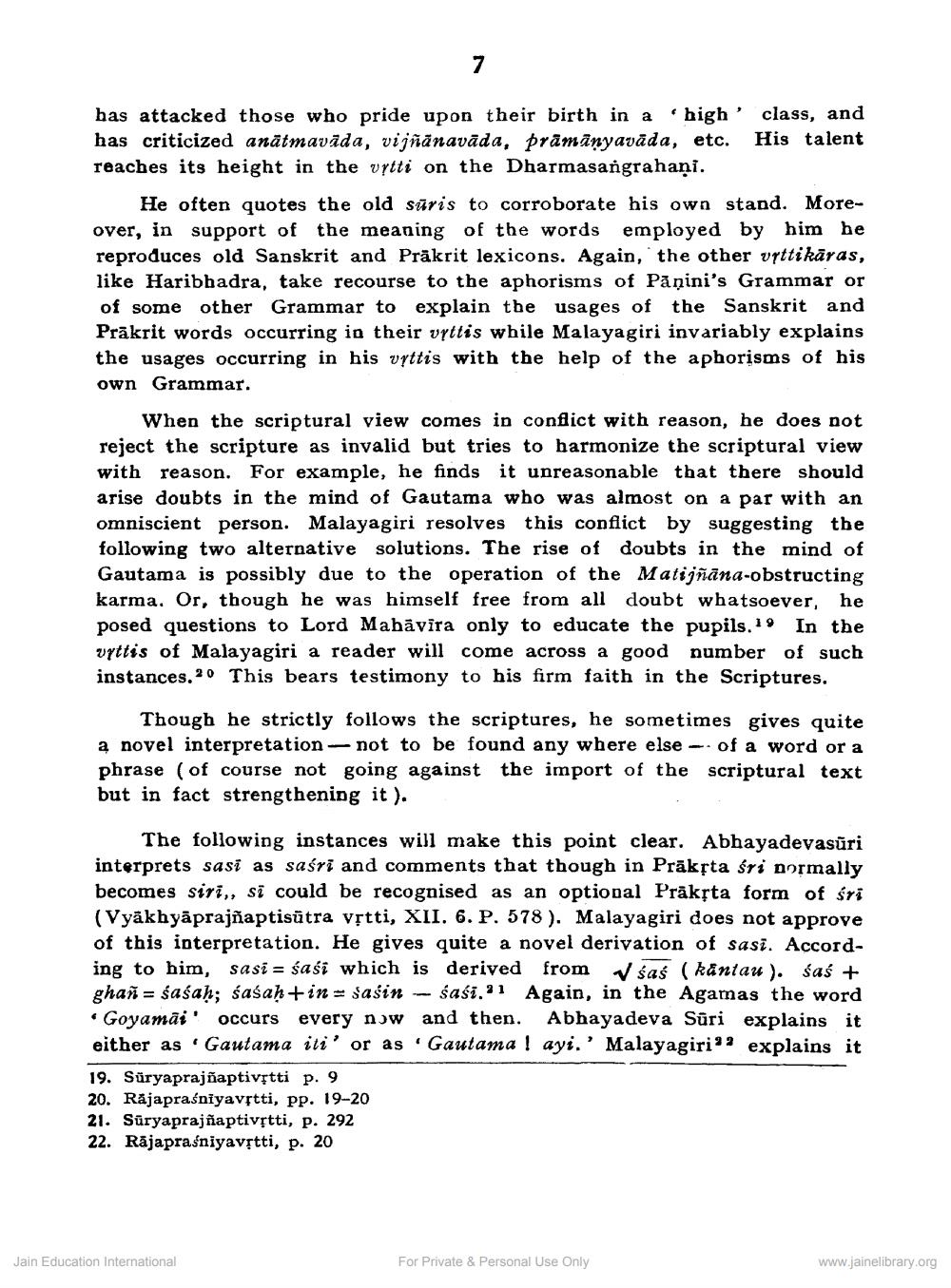________________
has attacked those who pride upon their birth in a high' class, and has criticized anātmavāda, vijñānavāda, prāmänyavāda, etc. His talent reaches its height in the vytti on the Dharmasangrahani.
He often quotes the old sūris to corroborate his own stand. Moreover, in support of the meaning of the words employed by him he reproduces old Sanskrit and Prakrit lexicons. Again, the other vrttikāras, like Haribhadra, take recourse to the aphorisms of Påņini's Grammar or of some other Grammar to explain the usages of the Sanskrit and Prakrit words occurring in their vyttis while Malayagiri invariably explains the usages occurring in his vyttis with the help of the aphorisms of his own Grammar.
When the scriptural view comes in conflict with reason, he does not reject the scripture as invalid but tries to harmonize the scriptural view with reason. For example, he finds it unreasonable that there should arise doubts in the mind of Gautama who was almost on a par with an omniscient person. Malayagiri resolves this conflict by suggesting the following two alternative solutions. The rise of doubts in the mind of Gautama is possibly due to the operation of the Matijñāna-obstructing karma. Or, though he was himself free from all doubt whatsoever, he posed questions to Lord Mabāvīra only to educate the pupils. 1. In the vyttis of Malayagiri a reader will come across a good number of such instances. 20 This bears testimony to his firm faith in the Scriptures.
Though he strictly follows the scriptures, he sometimes gives quite a novel interpretation - not to be found any where else- of a word or a phrase (of course not going against the import of the scriptural text but in fact strengthening it).
The following instances will make this point clear. Abhayadevasűri interprets sasi as sasri and comments that though in Prāksta śri normally becomes siri,, si could be recognised as an optional Prāksta form of sri (Vyakhyāprajñaptisūtra vịtti, XII. 6. P. 578). Malayagiri does not approve of this interpretation. He gives quite a novel derivation of sasi. According to him, sasi = Śaśi which is derived from v šas (kantau). Śaś + ghañ = Śaśaḥ; śaśaḥ + in= sasin - sasi.1 Again, in the Agamas the word • Goyamāi' occurs every now and then. Abhayadeva Sûri explains it either as Gautama iti' or as Gautama ! ayi.' Malayagiri'? explains it 19. Süryaprajñaptivịtti p. 9 20. Rajapraśniyavstti, pp. 19-20 21. Süryaprajñaptivștti, p. 292 22. Rājapraśniyavịtti, p. 20
Jain Education International
For Private & Personal Use Only
www.jainelibrary.org




